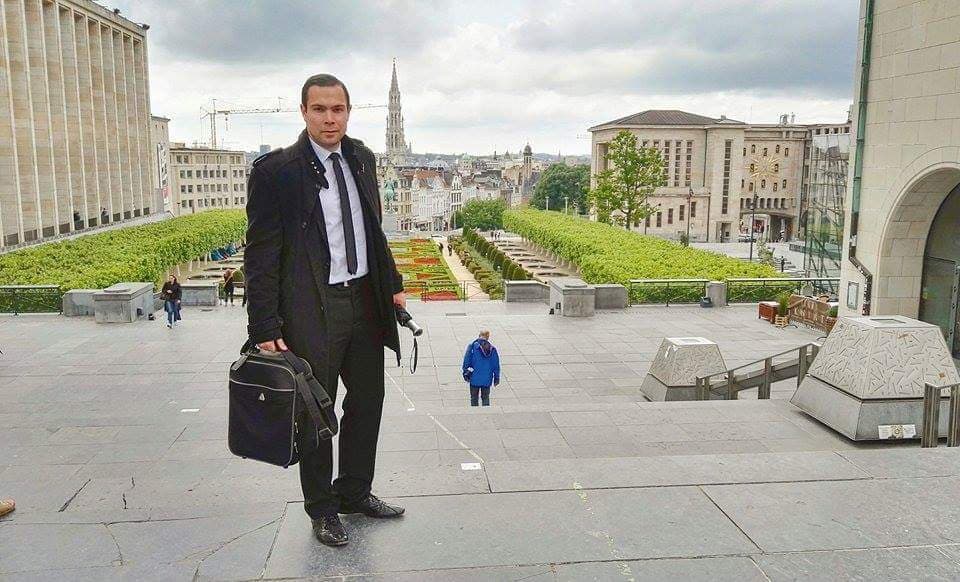The development of the concept of transitional justice represents one of the most dramatic events in the legal political science. We can rarely find another concept or theory in the legal political science which managed to develop with such a speed as is the case with the concept of traditional justice. In less than 60 years, the concept of transitional justice managed to grow into from an exception to a rule. Certain beginnings of the concept of transitional justice can be found in the ancient times, but yet, the trials in Nuremberg and Tokyo after the Second World War, are considered as the starting point of the concept of transitional justice. After the end of the Second World War, the fall of the regimes in South America, Spain, Portugal, as well as the fall of communism in Central, Eastern and South-Eastern Europe, the conflicts in Africa, and, of course, the fall of Yugoslavia, and the conflicts which came out as a result of Yugoslavia’s breakup, paved the way for this concept to be drastically developed in the last sixty years.
Yet, the theoreticians which deal with this concept, besides its rise, still struggle to find a widely accepted definition. Very often can the attempts be seen that the concept of transitional justice is being explained through listing of its basic mechanisms (criminal trials, amnesties, truth commissions, lustration and reparation programs). In the academic circles there are definitions which define the transitional justice as a legal response for the crimes that were committed in the period of repressive regimes. Besides these definitions, there are also definitions which define the transitional justice through the prism of facing human rights violation, which are a result of a war conflict. Recently, the definition of the International center of transitional justice started to dominate, which says that by transitional justice, we mean the determination of a society in transition from conflict or repressive regime towards peace, democracy, and the Rule of Law, to face the past where serious systematic violations of human rights were made. From all of the above mentioned we can easily come to a conclusion that the concept of transitional rule is used in periods of transition in post-conflict and post-repressive societies, respectively in periods where these societies transit towards peace, democracy and the Rule of Law. The basic motive behind this concept is that one society has to face its past in which systematic and serious violations of human rights were made, in order to have piece, consolidated democracy and Rule of Law. That’s why, while defining the concept of transitional justice, most often the starting point is that the concept of transitional justice and its aims are a positive and a good thing. However, we should have in mind that there are also theoreticians who look negatively on this concept, by considering that the concept of transitional justice in its essence is retroactive justice and doesn’t contribute neither for a faster transition towards peace and democracy, nor for satisfying the justice, but it can be a threat for the fragile societies because it causes further divisions and conflicts. A threat that may be misused for political party purposes and further violations of human rights.
Nevertheless, most of the theoreticians claim that the concept of transitional justice positively contributes for the process of democratic consolidation, because it contributes for the promotion and preservation of the stability, peace and democracy in the post conflict and post repressive societies. In the recent years, such theoretic claims are starting to gain more affirmation by conducting statistical research and data. Such statistic research gives evidence that the mechanisms of the transitional justice either don’t have a positive effect or neither positive nor negative effect on the process of democratic consolidation in a transitional society.
The place of transitional justice in the Macedonian society
The door for applying the concept of transitional justice in the Macedonian society was, and, it is still widely open, because the Macedonian society except for experiencing a war conflict in 2001, it also had an experience with a totalitarian regime in the period from 1945 till 1991. While in the Macedonian society very often there are discussions about dealing with the problematic past which is a result of the war conflict of 2001, the need for facing the problematic past, which is a result of the communist regime of the period 1945 till 1991, is pointed out insufficiently. From a condition where this issue was totally ignored during the nineties of the twentieth century, the Macedonian society in the period of 1998 till 2006 made certain efforts for bringing in this topic again, and in the end, after 2006, the topic for facing the communist past was totally misused for revenge and for political party purposes by implementing a scandalous process of lustration and abusing with the fate of the communist regime victims (Skopje 2014), for political party purposes and financially corrupt motives. According to that, the relation of the Macedonian society towards the problematic communist past can be divided in three major periods:
The first period (1991-1998), that is, a period in which we can see a complete ignoring of the need for facing the problematic communist past in the Macedonian society.
The second period (1998-2006), that is, a period in which the Macedonian society is trying to take certain steps in fighting its communist past, but the society is doing this insufficiently and in a very mild way.
The third period (2006-2017), that is, a period, during which the process for facing the communist past in the Macedonian society is being misused for political party purposes, for vengeance and revenge.
Marko Krtolica works as assistant professor at the Department of Constitutional Law and Political Systems at the Faculty of Law „Iustinianus Primus“ in Skopje. He graduated at the Faculty of Law „Iustinianus Primus“ – Department of Political Sciences in Skopje. After the graduation, he enrolled on Master’s studies in European Integration and regionalism, organized by the University „Charles Francis“ in Graz and the Autonomus University in Barcelona. He finished the master studies in 2010 and he holds master degree in European Studies. In 2012, Marko enrolled in PhD studies in Political Systems at the Faculty of Law “Iustinianus Primus” in Skopje. He completed the PhD studies in 2019 on the topic: “Transitional Justice and its application in the dealing with the communist past in Europe”.




